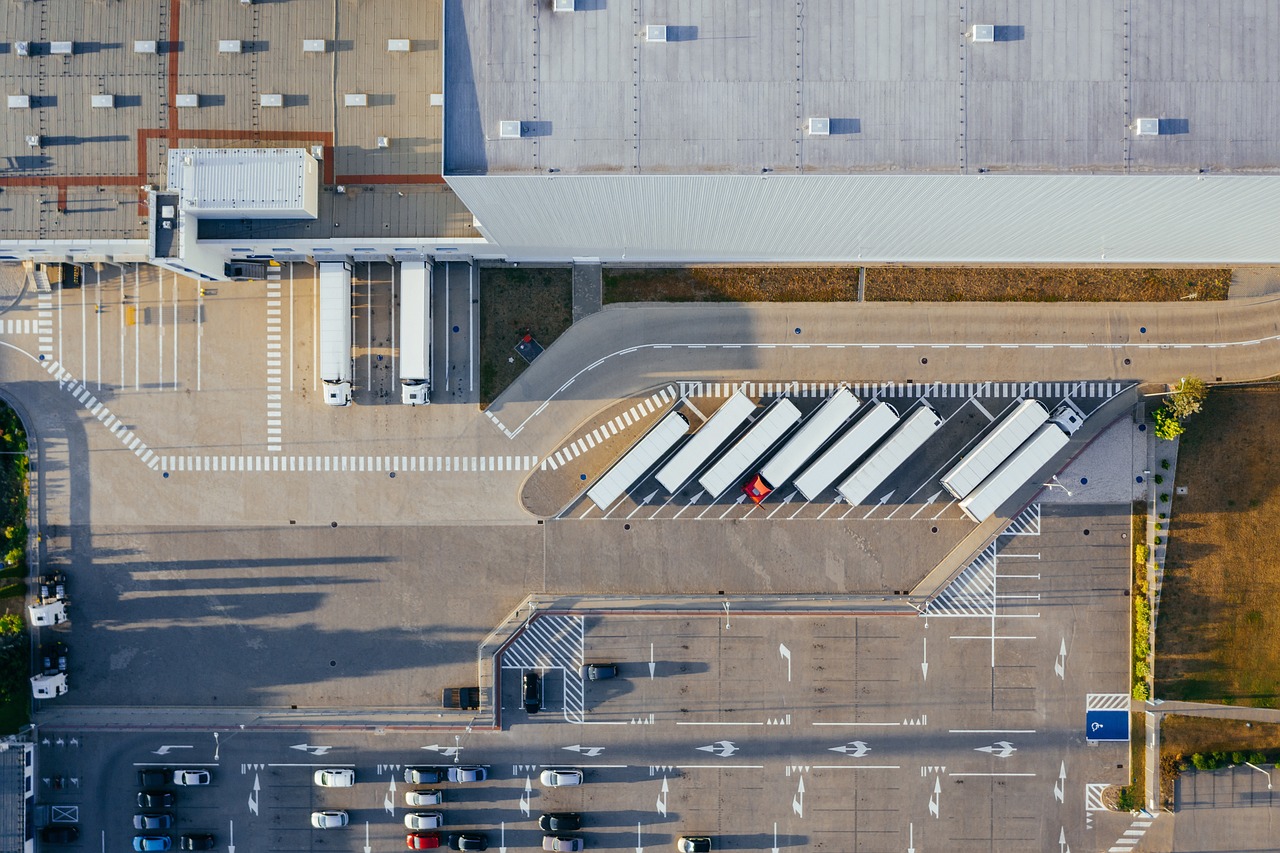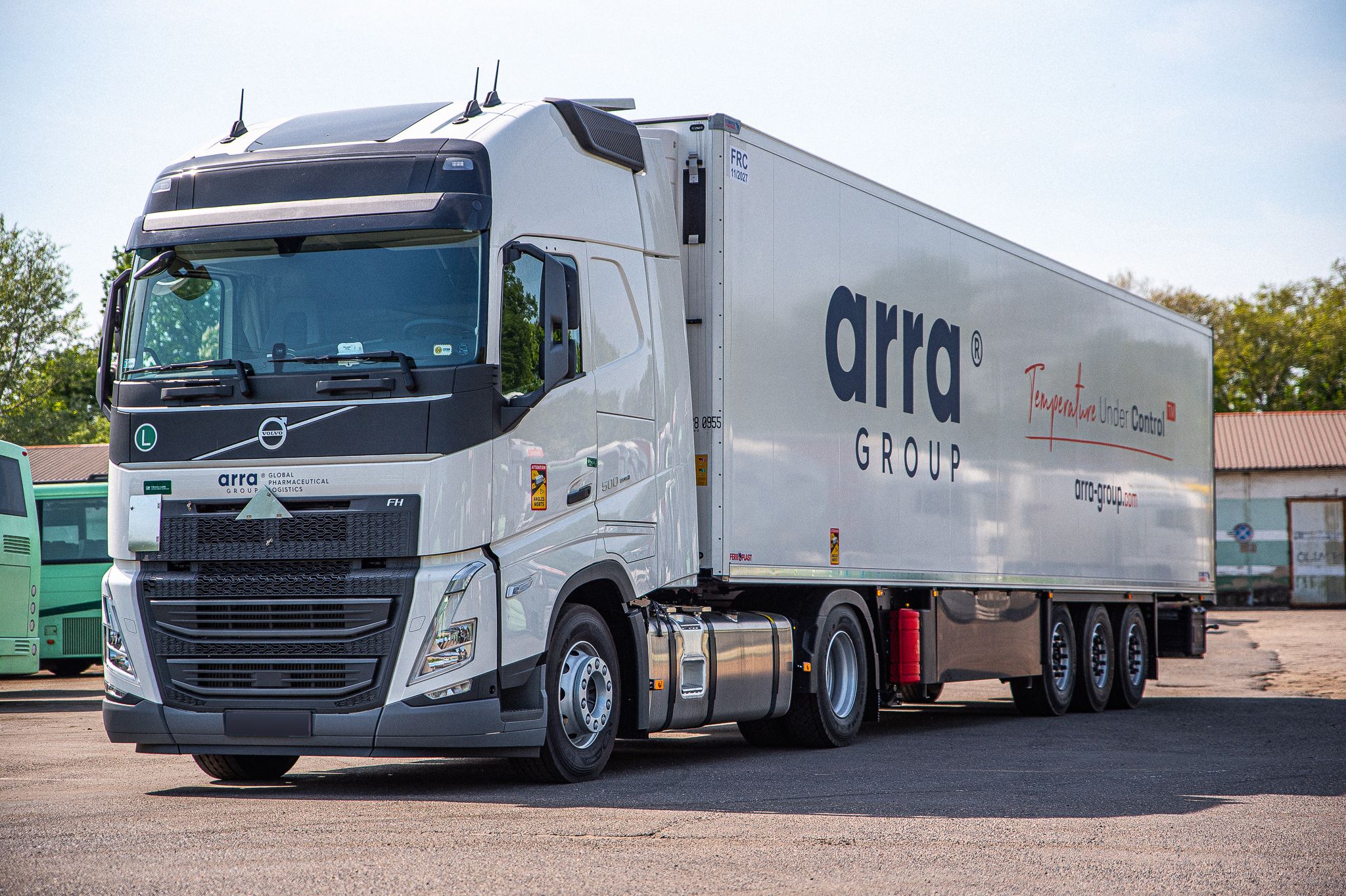
FTL and LTL transport –
what are the differences?
The key to success lies in optimizing the transport process -
from point A to point B - while minimising operational costs
and environmental impact.
In the face of globalization, the role of goods transport becomes essential for the effective operation of business in the international arena. The key to success lies in optimizing the transport process - from point A to point B - while minimising operational costs and environmental impact. Understanding the differences between key transportation methods such as LTL and FTL is the foundation for effective supply chain management.
These two forms of transportation divide shipments by size and need, offering unique benefits that address a variety of logistics requirements. The choice between LTL and FTL is important for maximising efficiency and profitability, as well as for reducing the negative impact of operations on the environment. Appropriate use of these techniques allows companies not only to save resources, but also to raise the ecological standards of their operations.

In the face of globalization, the role of goods transport becomes essential for the effective operation of business in the international arena. The key to success lies in optimizing the transport process - from point A to point B - while minimising operational costs and environmental impact. Understanding the differences between key transportation methods such as LTL and FTL is the foundation for effective supply chain management.
These two forms of transportation divide shipments by size and need, offering unique benefits that address a variety of logistics requirements. The choice between LTL and FTL is important for maximising efficiency and profitability, as well as for reducing the negative impact of operations on the environment. Appropriate use of these techniques allows companies not only to save resources, but also to raise the ecological standards of their operations.
FTL transport - full power of possibilities
FTL transport, also known as Full Truck Load, is a service where the entire vehicle is dedicated to carrying the cargo of one sender. The solution is ideal when you need to transport a large amount of goods that will fill the entire cargo space of the truck. One of the main advantages of this type of transport is the speed of delivery. Without the need to make additional stops to load or unload goods from other customers, the shipment reaches the recipient in a much shorter time. What's more, FTL provides greater security for the goods being transported, as the risk of damage is minimal with no need for reloading.
On the other hand, the main disadvantage of FTL transport may be the higher cost compared to the LTL option, especially for smaller loads that do not require the use of the full cargo space. Moreover, due to the exclusivity of the vehicle, it requires the sender to plan more precisely and the availability of goods for loading, which may be difficult in the case of dynamically changing production or delivery plans. Despite these limitations, for companies requiring efficient and safe transportation of large batches of goods, FTL is an irreplaceable option that guarantees maximum control over the delivery process.
LTL transport - basics and benefits
LTL transport, or Less Than Truck Load, is a freight service dedicated to cargo that does not require the full cargo space of a vehicle. With this option, senders are able to send smaller batches of goods, which is particularly beneficial for companies with diversified logistics needs.
A key advantage of LTL transport is its flexibility - it allows the shipment size to be adjusted to current needs, without having to wait for enough goods to fill the entire vehicle. The method also allows for a significant reduction in transportation costs, as shippers share the total expense of renting cargo space, making LTL an attractive choice for smaller companies and for lower-volume shipments.

LTL cargo – what are its advantages?
LTL cargo is characterised by greater availability for companies that need to transport goods efficiently and cost-effectively. The service offers the ability to respond more quickly to changing market needs, allowing shippers to ship goods as they become available, without waiting for a complete batch. What's more, LTL transport is often seen as more environmentally friendly, as it maximises the use of cargo space and reduces empty runs. For companies looking for ways to reduce the carbon footprint of their logistics operations, choosing LTL can help achieve these goals while offering financial benefits.
LTL in transport – challenges and limitations
Despite its numerous advantages, LTL transport has some challenges. One of them is longer delivery times, due to the need to consolidate loads from different senders and potential downtime in reloading centres. This method of transport may also involve a greater risk of cargo damage due to more handling and reloading during transport. In addition, the process of calculating the price for international LTL transport may be more complicated than for FTL, as it depends on many factors, such as weight, cargo volume, transport distance, and legal standards. Despite these challenges, for many companies the benefits of flexible planning and optimization of transport costs are critical, making LTL an important element of their logistics strategy.
LTL vs. FTL - optimising your transportation choices
The decision between LTL and FTL transport depends on the specific logistics needs. Choosing FTL is preferred when dealing with large batches of goods that require fast and direct delivery to the final destination. It is also a solution for sensitive or valuable shipments, where safety and minimising the risk of damage are the priority. On the other hand, LTL is an excellent choice for companies with smaller transport requirements that are looking for cost-effective solutions while being flexible in terms of the size and frequency of deliveries. It is ideal for smaller, regular shipments, enabling cost optimisation and increased availability of transport services. When choosing between LTL and FTL, it is crucial to understand your own logistics needs and priorities such as cost, delivery time and cargo safety.

Summary – choosing between LTL and FTL transport
Making the decision to choose between LTL and FTL transport requires a careful analysis of individual business needs. It is important to consider factors such as the type of goods to be transported, the required delivery time, costs and the availability of transport space. Sometimes, it may be most effective to use a combination of both methods, adapting your transport strategy to changing requirements and opportunities. The final choice should therefore be based on a thorough understanding of both the advantages and limitations of each option. A properly tailored transport strategy will allow not only optimise costs, but also increase the efficiency of the entire supply chain, which may ultimately contribute to the company's competitiveness in the market. Nowadays, when market dynamics and customer expectations are constantly changing, flexibility and the ability to adapt quickly to new conditions are the key to success.
It is very important to choose a company that will not only carry out the transport, but also advise on the best solution tailored to your needs. Arra Group is a partner that combines industry knowledge with an individual approach to each order, providing optimal transport solutions.
Choose Arra Group for your transport
Do you need a reliable partner in FTL or LTL transport? Arra Group offers professional services in the field of groupage and full-container transport, also specializing in pharmaceutical transport. As an expert in the international transport of medicines, we guarantee that your products will arrive safely and on time. Contact us today to discuss all the details.
At Arra Group, we follow the principles of GDP (Good Distribution Practice), which guarantee the consistency and quality of the goods throughout the entire transportation route. It is worth mentioning that we were the first company in Poland to receive the GDP certificate. In addition, we follow safety standards in the field of storage and transport of cargo in accordance with TAPA certificates. Take advantage of our experience and trust Arra Group in the area of medicine transport to give you peace of mind and the certainty that your shipments are in good hands.